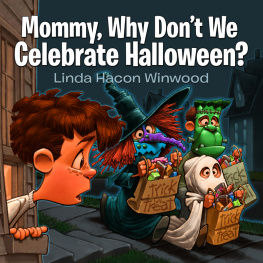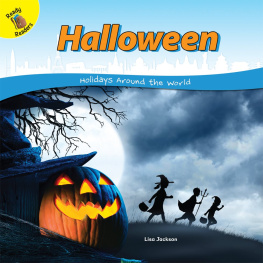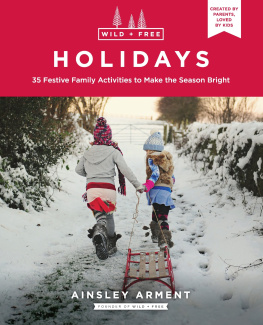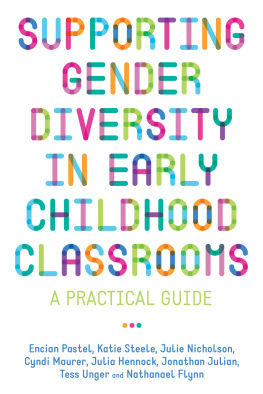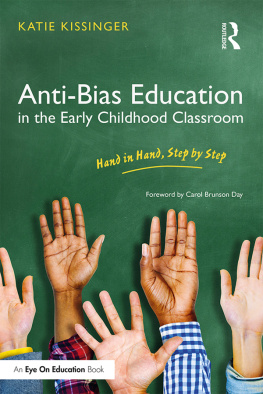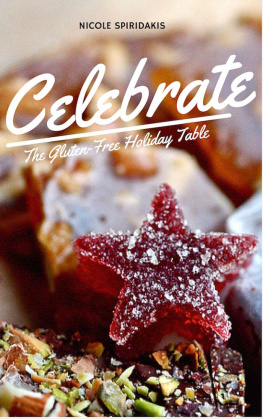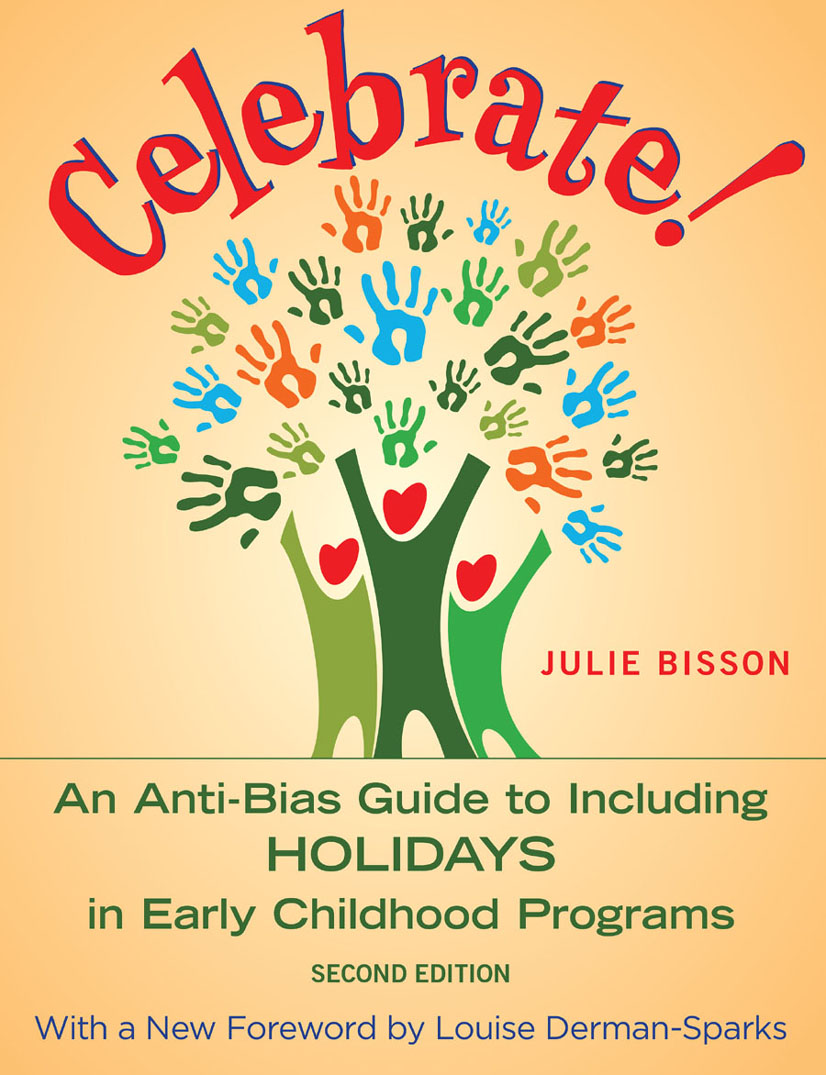
Published by Redleaf Press
10 Yorkton Court
St. Paul, MN 55117
www.redleafpress.org
1997, 2017 by Julie Bisson
All rights reserved. Unless otherwise noted on a specific page, no portion of this publication may be reproduced or transmitted in any form or by any means, electronic or mechanical, including photocopying, recording, or capturing on any information storage and retrieval system, without permission in writing from the publisher, except by a reviewer, who may quote brief passages in a critical article or review to be printed in a magazine or newspaper, or electronically transmitted on radio, television, or the Internet.
Cover design by Jim Handrigan
Interior design by Amy Fastenau
Typeset in New Century Schoolbook, McCracken, Trade Gothic
Library of Congress Cataloging-in-Publication Data
Names: Bisson, Julie, 1963- author.
Title: Celebrate!: an anti-bias guide to including holidays in early childhood programs / Julie Bisson; foreword by Louise Derman-Sparks. Description:
St. Paul, MN: Redleaf Press, 2017.
Identifiers: LCCN 2016017147 (print) | LCCN 2016018351 (ebook) | ISBN 9781605544540 (ebook)
Subjects: LCSH: Holidays--Study and teaching (Early childhood)--United States. | Early childhood education--United States--Activity programs. | BISAC: EDUCATION / Inclusive Education. | EDUCATION / Preschool & Kindergarten. | SOCIAL SCIENCE / Holidays (non-religious). | EDUCATION / Teaching Methods & Materials / General.
Classification: LCC GT4803.A2 B57 2017 (print) | LCC GT4803.A2 (ebook) | DDC 394.26--dc23
LC record available at https://lccn.loc.gov/2016017147
In memory of my grandmother, Armida Coppola Rotondo,
who really loved to celebrate
Table of Contents
Guide
Contents




by Louise Derman-Sparks
Including holidays in the curriculum has long been a staple of early childhood programs. These activities tended to be simplified versions of mainstream celebrations such as Halloween, Thanksgiving, Christmas, Valentines Day, Easter, and Mothers and Fathers Days. Programs proceeded on an unspoken assumption that all families of the children in the program celebrated them. Holiday activities often relied on a combination of teacher-made and commercially purchased materials. These were taken off the shelf for the celebration and then put away for the following year, regardless of the makeup of the children and families in any given year.
When awareness about the realities of cultural and family diversity in ECE programs began to grow, holiday activities quickly became a focal point. Adding new holidays to the ones already regularly celebrated seemed to be an easy way to bring diversity into a programs curriculum. As before, many teachers continued to use commercial materials, while some asked families to help them introduce the holidays they celebrated at homeespecially ones new to the staff.
However, as early childhood programs served increasingly diverse groups of children and families, it also became increasingly clear that using holidays to respectfully recognize and teach about diversity is not simple or easy. In 1979, Young Children published an article titled Beyond Ten Little Indians and Turkeys: Alternative Approaches to Thanksgiving (Ramsey, 2851). This pioneering piece called on early childhood educators to think critically about the biased messages and one-sided view of history embedded in the way the Thanksgiving story was typically taught. In 1987, Patricia G. Ramsey more fully developed her critical analysis, writing, When holidays are the sole or main focus of a multicultural curriculum, they become token gestures rather than authentic representations of cultural diversity (79).
Similarly, Anti-Bias Curriculum: Tools for Empowering Young Children (Derman-Sparks & ABC Task Force 1989) and Anti-Bias Education for Young Children and Ourselves (Derman-Sparks & Edwards 2010) put forward critical points about the connection between holidays and fostering diversity and fairness in early childhood education. Concerns included: (1) There is danger in oversimplifying and misrepresenting families cultures when relying on holidays as the primary vehicles for children to learn about diversity; (2) acting as if all families celebrate the same holidays, including those of the dominant or mainstream American culture, ignores the realities of diversity; (3) requiring children to celebrate mainstream holidays as if they were their own disregards and disrespects their families cultures; (4) certain mainstream holidays communicate misinformation and biases towards some groups of people; and (5) the commercialization of holiday celebrations promotes materialism and competition among children and reinforces the idea that a person is worth what she or he is worth financially (Ramsey 1987, 81).
These critiques sparked necessary discussions about holiday activities among early childhood educators. Consequently, several programs chose to respond to these issues by declaring a No-Holiday policy. But this strategy generated its own problems, as many teachers and families disagreed with it. A no-holiday approach also loses the benefits holiday activities have if theyre used appropriately.
Then, the 1998 publication of the first edition of Celebrate! An Anti-Bias Guide to Enjoying Holidays in Early Childhood Programs offered an insightful alternative to the no-holiday solution. A significant contribution to the evolving anti-bias education approach, it advocated for staff to engage in critical thinking and creative problem solving about ways to include holidays as part of a programs curriculum. And, as Julie Olsen Edwards and I wrote in Anti-Bias Education for Young Children and Ourselves (2010), the central point in the holiday debate is not deciding do I or dont I include holidays in my curriculum?; it is about how to ground whatever holiday activities you do in the principles of anti-bias education (135136). This means always paying attention to childrens identities and diversity, critical thinking about fairness/justice, and taking part in actions to create fairness.
Nevertheless, teachers and directors continue to show their perplexity about holiday activities in the curriculum. Frequent questions such as If we use an anti-bias approach, are we allowed to do holidays?; How do we include holidays without offending anyone?; If I celebrate one holiday, do I have to celebrate all of them?; and How do I eliminate commercialism? reflect core confusion about how to use holiday activities fairly.
It is a constructive sign that questions like these are being asked. At the same time, the fact that so many early childhood educators remain unsure about how to proceed indicates that the holiday issue has deep roots. For example, here is one early childhood teacher speaking about her struggle:


